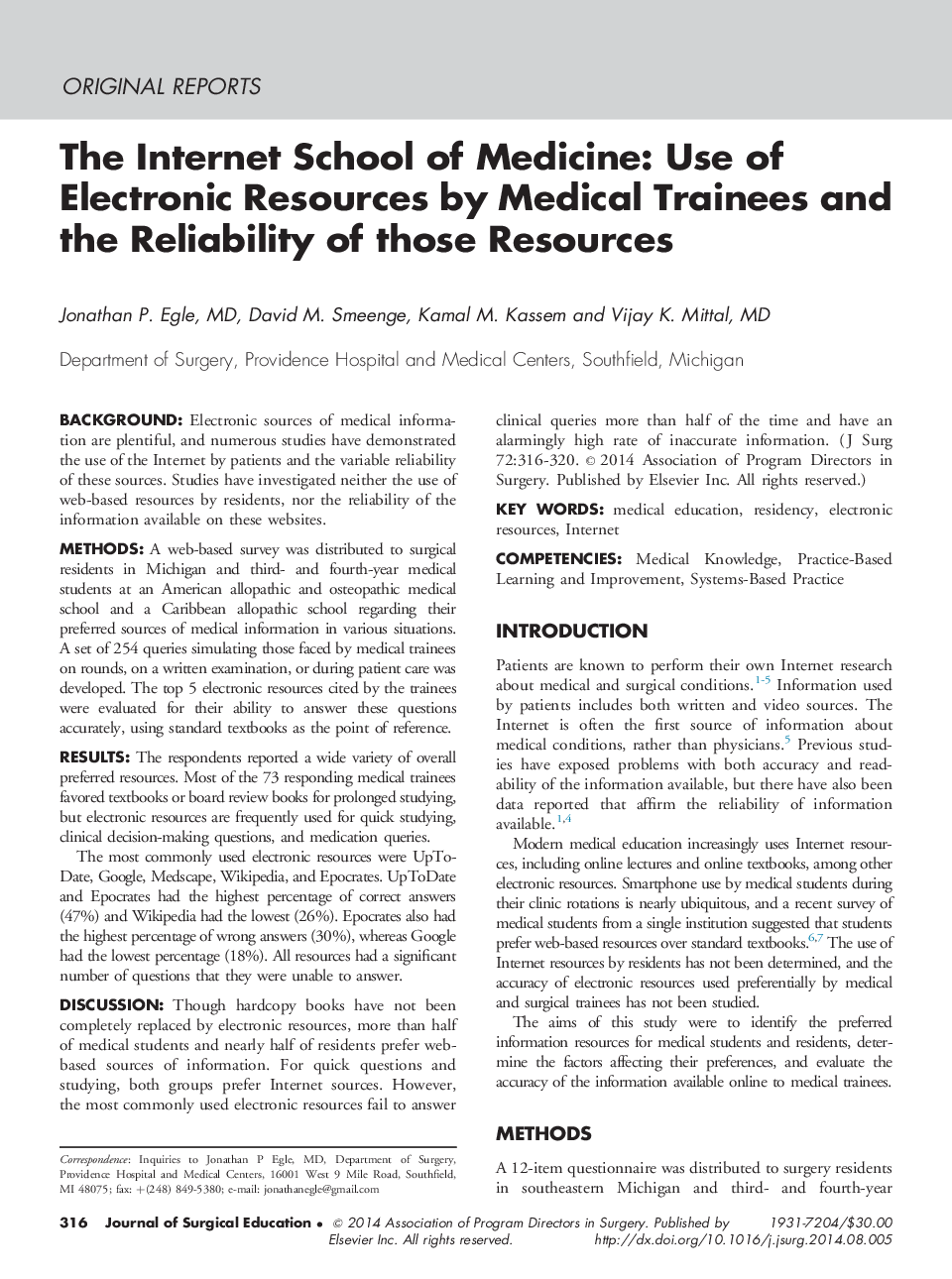| Article ID | Journal | Published Year | Pages | File Type |
|---|---|---|---|---|
| 4297674 | Journal of Surgical Education | 2015 | 5 Pages |
BackgroundElectronic sources of medical information are plentiful, and numerous studies have demonstrated the use of the Internet by patients and the variable reliability of these sources. Studies have investigated neither the use of web-based resources by residents, nor the reliability of the information available on these websites.MethodsA web-based survey was distributed to surgical residents in Michigan and third- and fourth-year medical students at an American allopathic and osteopathic medical school and a Caribbean allopathic school regarding their preferred sources of medical information in various situations. A set of 254 queries simulating those faced by medical trainees on rounds, on a written examination, or during patient care was developed. The top 5 electronic resources cited by the trainees were evaluated for their ability to answer these questions accurately, using standard textbooks as the point of reference.ResultsThe respondents reported a wide variety of overall preferred resources. Most of the 73 responding medical trainees favored textbooks or board review books for prolonged studying, but electronic resources are frequently used for quick studying, clinical decision-making questions, and medication queries.The most commonly used electronic resources were UpToDate, Google, Medscape, Wikipedia, and Epocrates. UpToDate and Epocrates had the highest percentage of correct answers (47%) and Wikipedia had the lowest (26%). Epocrates also had the highest percentage of wrong answers (30%), whereas Google had the lowest percentage (18%). All resources had a significant number of questions that they were unable to answer.DiscussionThough hardcopy books have not been completely replaced by electronic resources, more than half of medical students and nearly half of residents prefer web-based sources of information. For quick questions and studying, both groups prefer Internet sources. However, the most commonly used electronic resources fail to answer clinical queries more than half of the time and have an alarmingly high rate of inaccurate information.
